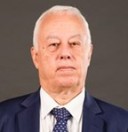Any natural or legal person providing any ICT service (such as Fixed or Mobile Telephone, Internet Access - fixed, mobile, satellite etc.) or media services (cable or wireless TV, radio), is subject to ENACOM regulations.
On the other hand, services provided through Internet only (WhatsApp, Skype, Zoom, Netflix, etc.) are not subject to these regulations.
Licences are required to provide ECS and ECNS unless an exemption applies.
Facilities leasing and interconnection agreements between licensees are subject to regulatory requirements and approval by ICASA.
A radio frequency spectrum licence is required to make use of radio frequency spectrum. Type approval is required for electronic communications facilities and equipment. Numbers from the national numbering range are managed and allocated by ICASA.
Further particulars regarding these regulatory requirements are set out below.
Electronic Communications Network Services
The ECA defines ECNS as a service whereby a person makes available an electronic communications network (‘ECN’), whether by sale, lease or otherwise:
- for that person's own use for the provision of an electronic communications service or broadcasting service;
- to another person for that other person's use in the provision of an electronic communications service or broadcasting service; or
- for resale to an electronic communications service licensee, broadcasting service licensee or any other service contemplated by the Act.
An ECN is defined in the ECA as being a system of electronic communications facilities and, in line with the technologically neutral licensing framework, there is no restriction on the types of facilities and systems that can be used for the conveyance of electronic communications. These may include, but are not limited to, satellite systems, fixed and mobile systems, fibre-optic cables, and electricity cable systems.
Electronic Communications Services
The ECA defines ECS as any service provided to the public, sections of the public, the State, or the subscribers to such service, which consists wholly or mainly of the conveyance by any means of electronic communications over an ECN, but excludes broadcasting services. An operator who holds an ECS licence may provide services to customers over its own or a third party's network.
It is helpful to consider the following fundamental distinctions between these ECS and ECNS types:
- Wholesale vs. retail: An ECNS licensee wholesales network capacity to ECS licensees or other ECNS licensees for resale, but it does not deal with the public. An ECS licensee, on the other hand, offers retail services to the public (and may also provide wholesale services for resale to third parties).
- Physical vs. virtual networks: An ECNS licensee operates physical networks made of facilities such as fibre or base stations. An ECS licensee operates virtual networks such as VPNs and MPLS networks.
Radio Frequency Spectrum
The ECA vests the control of radio frequency spectrum in ICASA. Unless exempted, no person may make use of radio frequency spectrum without a licence. The National Radio Frequency Plan, 2021 (‘National Radio Frequency Plan’) allocates the electromagnetic spectrum to radio services in the frequency bands between 8.3 kHz and 3000 GHz. All frequency assignments must be in accordance with the current version of the national radio frequency plan. Only ECNS licensees may apply for a radio frequency spectrum licence in terms of the Radio Frequency Spectrum Regulations. The National Radio Frequency Plan takes into account the International Telecommunications Union (‘ITU’) spectrum allotments for radio frequency spectrum use.
Radio Apparatus
Unless exempted, no person may possess radio apparatus without a radio frequency spectrum licence. This applies to all persons and not just to licensees and exempted persons. Apparatus that have low power applications are generally exempted from the radio frequency spectrum licence requirement.
Type Approval and Labelling
No person may possess, use, supply, sell or lease any type of electronic communications equipment, facility, or radio apparatus used (or to be used) in connection with the provision of electronic communications unless that equipment, facility or radio apparatus has been type approved by ICASA. in accordance with the Type Approval Regulations, 2013 (‘Type Approval Regulations’). These regulations apply to all persons (including retailers and importers) and not just to electronic communication service providers and exempted persons. Guidelines relating to type approvals have also been published in the Government Gazette.
ICASA is authorised by the ECA to prescribe the types of equipment, facilities and radio apparatus and the circumstances in which type approval is not required. In this regard, low power devices operating on FM Band II are exempt from licensing and type approval.
ICASA generally recognises type approval given by international standards organisations such as the European Telecommunications Standards Association.
All equipment that has been type approved and received type approval certificate must have a label permanently affixed thereto reflecting ICASA’s logo and the type approval reference number. Electronic labels may also be installed in products with a built-in display which is integral to the equipment. The labelling requirements set out in the Labelling Regulations, 2013. New regulations were published in March 2022, which are not in force yet.
Number Allocation
The ECA requires that ICASA maintain and manage a national numbering plan consisting of geographic and non-geographic numbers. Only individual ECS licensees may apply for numbers from the national numbering plan for use in conjunction with mobile, fixed line and VoIP voice services. Numbers are regarded as a national resource and are not owned by a licensee. Conditions apply to the allocation of numbers. These conditions as well as application procedures are set out in the Numbering Plan Regulations, 2016.
Number Portability
ICASA introduced number portability as a consumer protection initiative in 2005. The Number Portability Regulations, 2005, were published under the Telecommunications Act in 2005 as were the Functional Specifications for Mobile Number Portability. The Functional Specifications for Geographic Number Portability were published in 2007.
New regulations, namely the Number Portability Regulations, 2018 and the Ordering System Specification for Number Portability, 2019 have been gazetted and these replaced and repealed the existing regulations on 7 March 2022.
Argentina is the third-largest economy in Latin America. Although it benefits from a wealth of natural resources, a diversified industrial base and a highly skilled labor force, statist and interventionist policies expose the economy to persistent boom-bust cycles. It is the fourth more populated country in Latin America and one of the countries with the highest penetration of mobile services.
The Government Body in charge of the control of the telecom and media industry is the National Entity of Communications (“ENACOM”), an autonomous and decentralized entity. It is in charge of the application of the Digital Argentina Law 27,078, Audio-visual Services Law 26,522, and related regulations.
Also, the Undersecretary of Telecommunications and Connectivity is in charge of the dictation of regulation about telecommunications.
Both entities are on the Federal Government. States and localities have no authority for regulation of the services, they only request a permit for the installation of telecommunications infrastructure.
The main regulations applicable to the ICT sector are:
- Digital Argentina Law 27,078,
- Audio-visual Services Law 26,522,
- Decree 764/2000 (Spectrum),
- Decree 690/2020 (Price Regulation),
- Decree 588/2008 (Universal Service),
- Resolution 286/2018 (Interconnection),
- Resolution 697/2018 (Licenses),
- Consumer Protection Law 24,240.
The Licensing Regulation rules licenses, resale services, serving areas, obligations of the licensee to other licensees, to customers, and to the Regulator. The regulations set a Single License System that allows the licensee to provide any kind of telecommunication services (fixed or mobile, wired or wireless, national or international). Licenses are granted without a term limit, on demand, with a national scope, and with freedom of choice on technology and investments.
Spectrum regulation establishes that the spectrum is a public domain property, and it is granted on a precarious basis. The bandwidth to be granted must be related with the services to be provided. The bands are granted on demand or by a public auction.
The pricing regulation of telecommunications services had established “fair and reasonable” prices, which meant unregulated prices, until the Decree 690/20 was enacted. This Decree states that the prices will be reasonable, fair, must cover the operation expenses, assure a reasonable profit margin, and that they will be “regulated” by the Authority.
This Decree, enacted in August 2020, prohibited raising prices until December 2020, and subsequent resolutions of the Authority allowed higher prices since that date. But these resolutions and the Decree were challenged in the courts, and a lot of companies (Telecom, Telefónica, Directv, Telecentro, TV Cable Color, etc.) received precautionary measures in their favor, halting the price regulation and consequently allowing price freedom again.
ENACOM
Perú 103, Ciudad de Buenos Aires, ZIP C1067AAA.
+5411 4349-9145
Undersecretary of Telecommunications and Connectivity
Roque Sáenz Peña 788. ZIP C1067AAC.
+5411 4347-9200
Any natural or legal person providing any ICT service (such as Fixed or Mobile Telephone, Internet Access - fixed, mobile, satellite etc.) or media services (cable or wireless TV, radio), is subject to ENACOM regulations.
On the other hand, services provided through Internet only (WhatsApp, Skype, Zoom, Netflix, etc.) are not subject to these regulations.
Single Licenses are granted by the ENACOM. ENACOM does not have the authority to deny a license if the application meets all the requirements. One the License is acquired, the licensee can request a Registration of Services, by which they are able to provide the registered services. To register services, no technical, legal, or economic support documents must be filed, only a simple petition.
Once the license and registration are granted by ENACOM, the licensee is required to provide the registered services within 24 months from the date of registration, permit the interconnection of its networks to any provider that requests the interconnection as established by the National Interconnection Rule; and provide information about traffic, total revenues and other information related to the geographical coverage area, to ENACOM.
Single Licenses are granted to both domestic and foreign companies (branches of foreign companies that are registered to conduct business in Argentina). There are no restrictions on foreign participation in the capital of the licensee. A completely foreign-owned company, if locally registered or a branch of a foreign company, can qualify for a license and a spectrum permit.
The Single License can be obtained upon filing the following information with ENACOM:
- Full legal name, Articles of Incorporation, Bylaws, Minutes of designation of valid authorities duly registered with the corresponding registries;
- Principal place of business and address in which legal notices shall be deemed duly given by ENACOM;
- An affidavit indicating that the applicant and its shareholders are not subject to any incompatibility;
- An affidavit assuring the compliance with the standards and technical specifications regarding telecommunications equipment and devices.
To hold a spectrum permit, the process depends on whether the spectrum authorization is granted by auction or by direct award. Radio spectrum can be assigned to service providers through public auctions, bidding processes (when there is a shortage of band frequencies), or upon demand. When a request to use a frequency band is filed with the ENACOM, it shall publish the frequency band requested in the Official Gazette, establishing a period of 15 days for third parties to have the opportunity to give evidence of their interest of said frequency band. If there are more interested parties registered than bands of frequencies available for authorization or if a shortage of frequencies is foreseen, the authorization for the use of a frequency band will be made through public auctions. If there are no third parties interested in a particular frequency band other than the one that has filed a request or if there is no shortage of frequencies foreseen, authorizations will be granted on demand.
A licensee must be incorporated in Argentina or have a registered branch office in Argentina.
The Interconnection Rules provides licensees with a right to interconnect. Licensees must seek to negotiate, in good faith, requests for interconnection at any technically feasible point. Any party may refer a dispute regarding interconnection or access to ENACOM for resolution if no agreement is reached. Licensees with Significant Market Power must publish a Reference Offer.
There are many mandatory matters to be addressed in the interconnection agreement such as: tariffs and invoicing systems, technical and operational matters, etc.
Domestic inter-carrier roaming is not mandatory and is regulated through commercial agreements reached between the relevant carriers.
Consumer regulations states that licensees must provide to the consumer all the information related to the service, in Spanish, in a clear, detailed, free of cost manner. On the website and in the stores, it must be informed:
- The consumer’s rights recognized by this Rule,
- The standard contract filed to the ENACOM,
- The address and free phone number of Customer Service of both the company and the Regulator, and the procedure to file claims,
- Details and prices of the services,
- Covered areas,
- Terms for the reception of messages with ads,
- Procedure to unsubscribe from content services (must be the same as the procedure to subscribe),
- Policies about recycling and final disposition of electronic waste, of electronics used for the service.
Besides, the licensee must publish information about the speed, quality of the link, type of services, on a site that must be linked to the main site of the company. For each type of service, the licensee must inform commercial characteristics of the service, speed, downloads limits, oversubscription rate, technical standards of quality service, resetting operation time, quality and availability of links, and network management measures.
The cost of the License is USD 100. There is no cost for the registration of specific services.
Telecom services providers must pay:
- the Control, Inspection, and Verification fee: 0.50% of the total income accrued for the provision of services, net of taxes, and charges.
- the contribution to the Universal Service Trust Fund: 1% of the total income accrued for the provision of services, net of the taxes and charges.
- payment for the use of the radio spectrum.
ENACOM can impose fines for breaking the federal regulations and consumer regulations.
Both federal and local Consumer Protection offices can impose fines for breaking Consumer Protection laws.
Fines, closure, confiscation of the products, can be imposed by Consumer Protection Offices.
ENACOM can impose fines, closure, administrative precautionary measures about ceasing to operate, and in the most serious cases, the penalty could be the termination of the Register.




